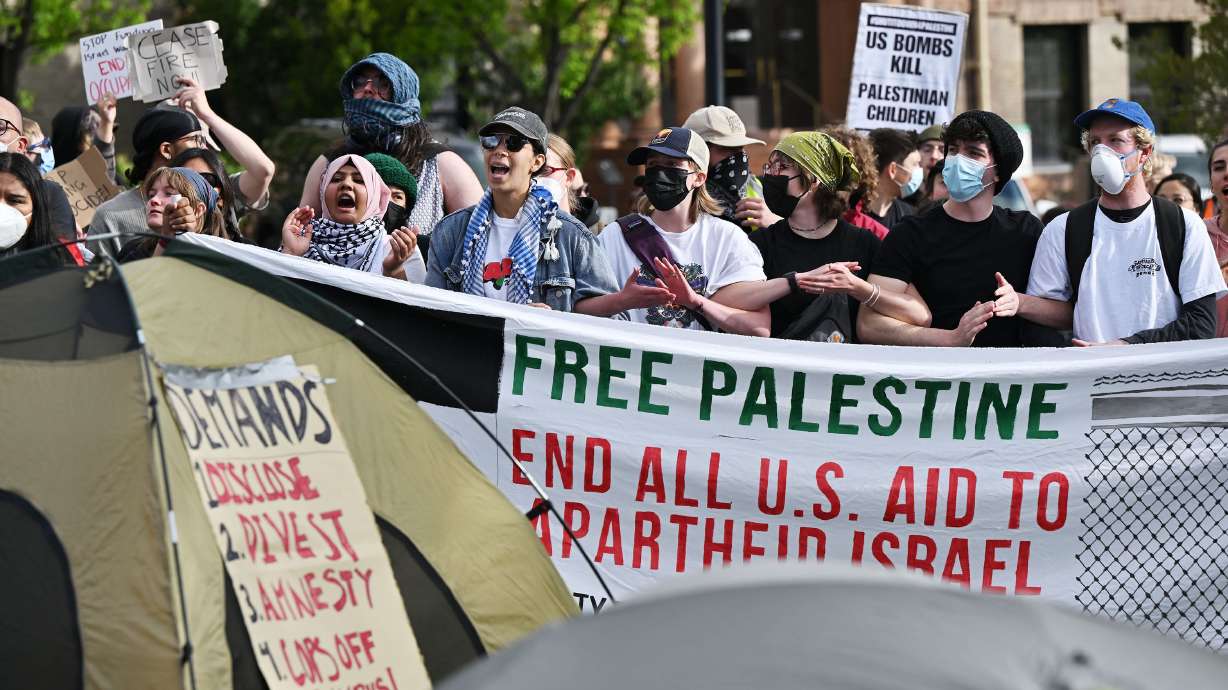Estimated read time: 2-3 minutes
This archived news story is available only for your personal, non-commercial use. Information in the story may be outdated or superseded by additional information. Reading or replaying the story in its archived form does not constitute a republication of the story.
SALT LAKE CITY — At pro-Palestinian demonstrations across the country, including protests at the University of Utah, this chant has been their clarion call: "Disclose. Divest. We will not stop. We will not rest."
At the University of Utah, speakers at rallies have singled out defense contractors, while nationally, there have been calls to cut ties with Israel.
Statements from University of Utah officials suggest neither demand is feasible given the makeup of the university's investment portfolio and prohibitions in Utah law.
"Less than 1% of the U.'s portfolio is invested directly in common stock, and none of these investments include the stocks pro-Palestinian demonstrators target for disinvestment," the university said in a statement.
Utah law expressly prohibits government organizations from entering into contracts with businesses that boycott Israel. This includes investment contracts and contracts with fund managers, according to the statement published at @theU.
In an op-ed published earlier this week in the Deseret News, University of Utah President Taylor Randall explained how divestment at public universities differs from private universities, which have sole control over their investment portfolios.
"In contrast, elected officials and state law govern public entities, like the University of Utah. In Utah, state law specifies two broad investment principles: institutional neutrality and prudent money management. Both principles limit the university's ability to divest for geopolitical reasons," he wrote.
Protesters' demands to divest are reminiscent of demonstrations on college campuses in the 1970s and 1980s when students called for universities to divest from companies doing business with South Africa in light of the country's apartheid policies. Apartheid was the official racial segregation system of South Africa.
Divestment means an investor or institution sells its shares of a company to avoid complicity in activities they deem unethical or harmful. It is intended to reallocate funds to more ethical investments and make a public statement that can pressure a company or government to change its policies, according to CNN Business.
In the 1990s, researchers from University of California, Los Angeles and the Berkeley Research Group examined the impact of the boycott of South Africa's apartheid regime.
They concluded "despite the public significance of the boycott and the multitude of divesting companies, financial markets seem to have perceived the boycott to be merely a 'sideshow.'"
The University of California system economist found there was almost no effect on share price likely because "the boycott primarily reallocated shares and operations from 'socially responsible' (investors) to more indifferent investors and countries."
Randall, in his op-ed, wrote that using university endowments as political tools sets a dangerous precedent.
"Such action in and of itself may stifle academic and political debate. We won't do that at the University of Utah," he wrote.









